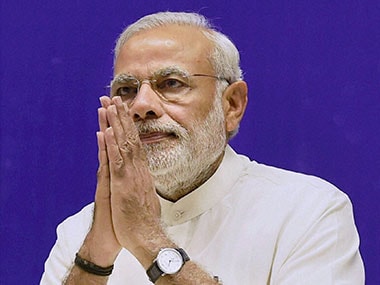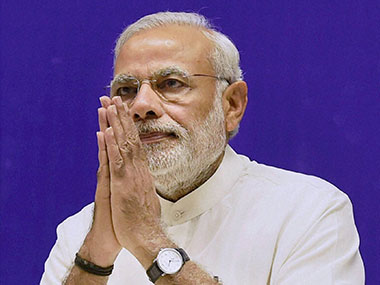Narendra Modi’s government is completing its two years and while several things have changed people’s expectations is that more could be done. But what is it that can be done if real change has to happen. What is needed is not always what business particularly big business wants. One thing that has certainly changed is the relationship of the central government with big business. [caption id=“attachment_2783002” align=“alignleft” width=“380”]  Prime minister Narendra Modi[/caption] Proximity, access and influence is what big business and corporate houses thrived on. The Delhi clique of corporate houses is always the first to establish joint ventures and benefit from regulatory arbitrage. These business house always had the edge over even Mumbai. While favorites do change and the current regime has its own. The important thing is that big businesses and its lobbies have a much lesser say in policy making now. The access of big business has reduced and it is something that they are not happy with. The murmurs of dissatisfaction that occasionally surface in pink newspapers are big business ruing this loss. A sign that this access has gone down is also visible that big business owners are no longer called for ‘meetings’ by bureaucrats or middlemen. Corruption at central level has gone down, as control has been centralized at the PMO level. Which is visible from the size of the PMO office now, it is several times larger now than ever in the past. The reduction in corruption does not mean that it is gone forever or vanished from India. The state government still continues to function in a merry way. There are two interfaces that big business has with the central government taxes and policy. A loss of influence on both these issues is a good thing for rest of the country. Big business with its impressive lobbying bodies has an unnecessary and unduly large influence on policy making at the central level. More than the influence they also forced the government machinery to think differently when it came to economic growth. For instance, for a long time lobbyists have been pushing for electronic equipment manufacturing even pushing the government to set up semiconductor fabrication units in the joint sector. They have forced policy where global electronic companies like Nokia were forced to set up a plant in India. They have forced assembly units in the guise of promoting manufacturing. Electronic manufacturing by its very nature is a bad proposition for the country as it is not employment intensive. It is highly automated and is almost impossible to replicate the full supply chain in India now. But it continues to lobby the government for sops and incentives and survives on policy arbitrage not on its own competitiveness or efficiency. There needs to be clear understanding of what manufacturing can do and cannot do. It cannot always increase employment, if its capital intensive than by default it will be highly automated. Capital does help in generating an economic velocity or creating clusters but what is its overall impact on a populous country like ours needs to be understood. Big business does help in creating an ‘economic velocity’ but it does not mean that it has an equal impact on direct employment. Matter of fact a cement plant set up now is so highly automated that it will only generate one tenth the direct jobs that it did ten years back. Government needs to look at big investment differently too before giving sops or incentives based on the quantum of investment. Yes big investment can create clusters of development but only if they have supply chain backwards. A refinery has a supply chain but not in India it will create ancillary industry but may not give the employment bang for every million invested. May be a textile plant will do better. This difference in employment generation for every million invested and every million given in incentives should be known. One thing that is certainly known is that small and medium businesses are and will be the biggest employment generator. They are not always the focus of policy making, incentives are not created or prepared for industries that they proliferate in. Small vs big: This is the change in perspective that is important now, and is possible now as the government has cut the influence of big business. Can they now structure policies for industries where SMEs in India have natural strength. To do so they would have to distinguish between the traders and makers, as increasingly countries that have followed the traders lost not only manufacturing but crucial jobs. And one of the biggest trading sector is the retail sector, particularly organized retail and e-commerce. While it is considered retrograde and old fashioned to rile and rail against e-commerce as it is considered a tech industry like Uber is considered a tech company. These companies need to be seen through the prism of trade. Especially, now as most of them are owned by Chinese companies and Chinese sovereign funds. The new set of investors in Flipakart and PayTM are Chinese companies, and snapdeal is looking for them too. I don’t think I need to remind readers that as the world’s largest manufacturing engine China needs access to retail to reach consumers directly. And with e-commerce they can do it so easily. It took Walmart-China several years to destroy US manufacturing industry, but with e-commerce China will do it much faster in India. It is surprising that the government issued a new e-commerce policy without studying the impact of this industry on SME manufacturing. The e-commerce lobby helped no doubt by the Chinese companies created such a distortion field that FDI was allowed in this sector from Chinese companies without understanding its repercussions. Some babus in the DIPP and Ministries of Commerce need to have their heads seriously examined for the errors that they have committed in giving the Chinese complete control of Indian retail industry. The government needs to revise its perspective on e-commerce if SME industry has to survive in India. What is good for the consumer may not always be good for the country. The writer is a policy commentator and business strategist based in New Delhi, he tweets @yatishrajawat.
The access of big business has reduced and it is something that they are not happy with
Advertisement
End of Article


)

)
)
)
)
)
)
)
)



